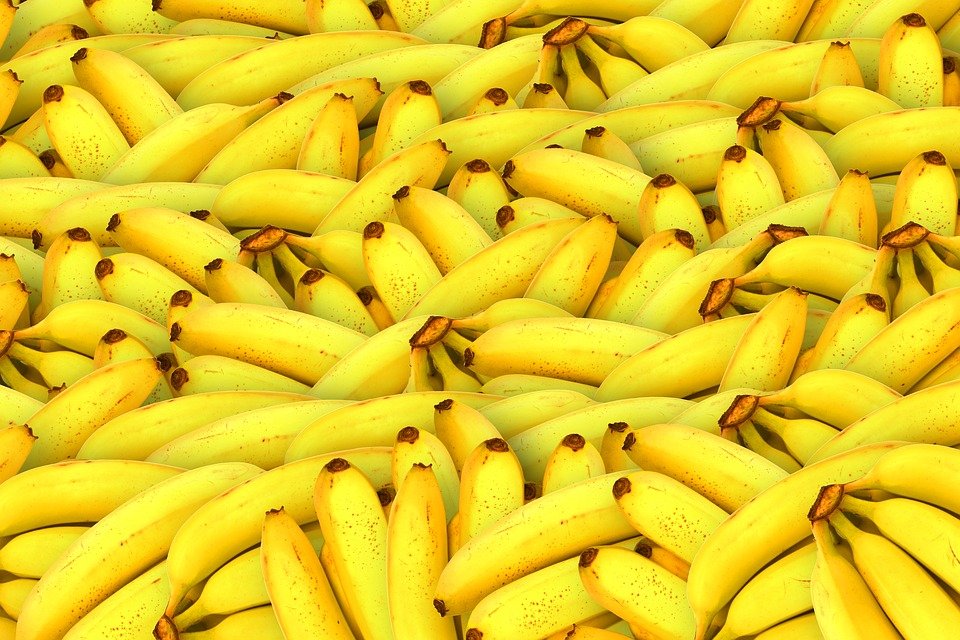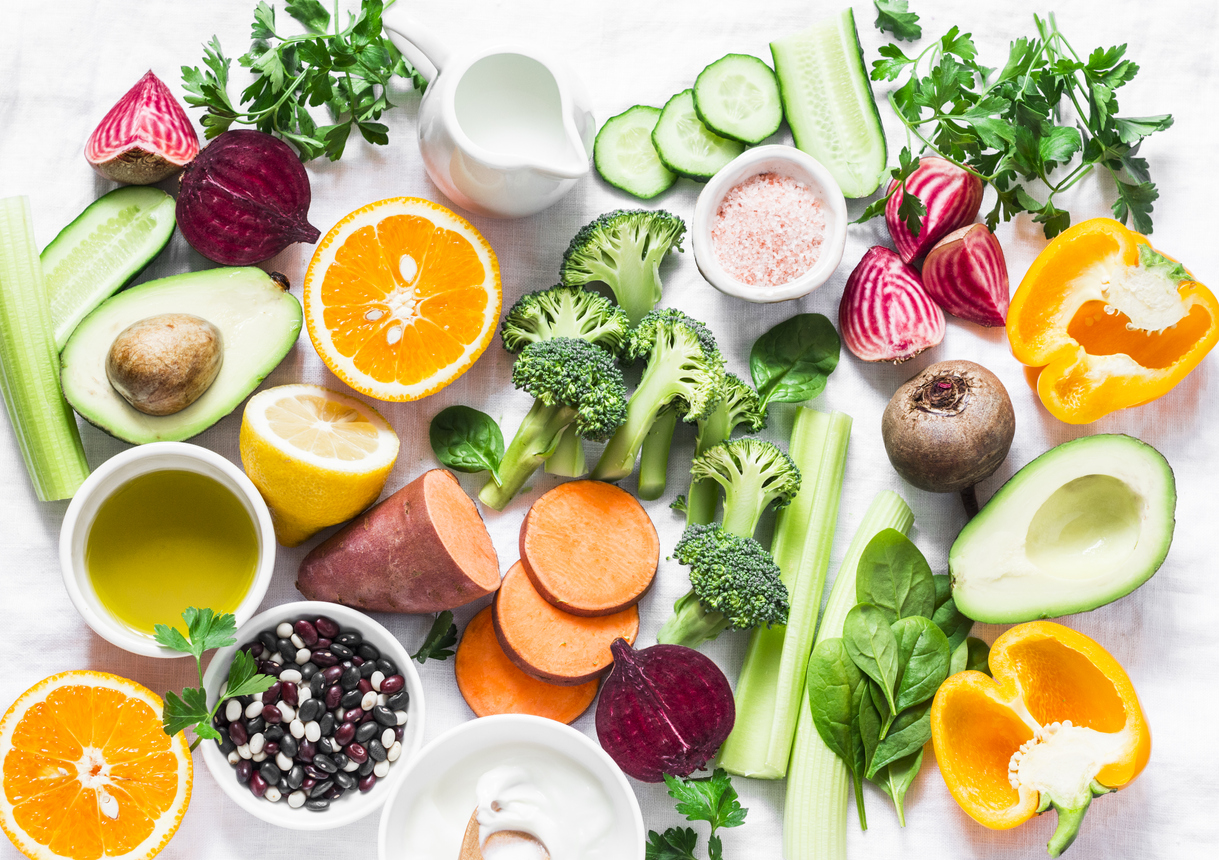They are found everywhere so don’t forget to add them to your next shopping list. In fact, according to scientists, eating 1 to 3 bananas per day is good for our health. Banana is a fruit that contains a large amount of potassium (around 500 mg for one banana). It is also rich in vitamins B and C, biotin, manganese and dietary fiber which help digestion. Low in calories (around 100 calories) and low in cholesterol, fat and sodium, it is the perfect snack for people on a diet. Eating it every day would also reduce the risk of stroke and improve cardiovascular health. Banana stimulates the brain and gives energy in addition to a feeling of satiety. It is also recommended for athletes before playing sports.
In summary, eating bananas daily is good for you and the benefits are numerous. Here are 8 good reasons to eat one of the most popular fruits on the shelves!
1) A fruit that fights depression
Bananas are a good source of tryptophana type of protein that the body converts into serotonin. This helps relax the body and improve mood.
2) An anti-stress… that gives you bananas!
When you are stressed, the potassium in your body drops, and as we said above, bananas are rich in potassium and what’s more, it helps you regulate your heart rate.
3) To relieve the symptoms of premenstrual syndrome
Bananas are rich in good nutrients such as vitamins and minerals. Particularly rich in vitamin B6, they will have a positive impact on your moodbecause vitamin B normalizes glucose in the body. So, if you are suffering from mood swings due to PMS, eating bananas can help you.

4) A banana to prevent constipation
Intestinal and transit problems? Turn to the banana, this one is rich in dietary fiber (around 3 g) and helps fight constipation.
5) For good blood pressure
Thanks to his high potassium levelbananas promote better cardiovascular health. Potassium helps regulate heart function and the body’s water balanceand therefore reduces the risk of high blood pressure and stroke.
6) Help to quit smoking
Rich in vitamins B6 and B12bananas can help the body recover from the effects of nicotine withdrawal.
7) It fights against anemia
Bananas are riches en fer and help stimulate hemoglobin production. However, anemia is an abnormality of the blood count characterized by a decrease in the hemoglobin level below its normal value. This lack leads to poor transport of oxygen by the blood. Stocking up on iron by eating bananas will help blood transport function properly.
8) Banana strengthens bones
Always for his high potassium contentbanana helps preserve and strengthen bones. In fact, potassium reduces the loss of calcium from the body and therefore there is much less risk of developing osteoporosis (diffuse skeletal disease characterized by a reduction in bone density and alterations in the microarchitecture of the bones. These alterations make the bone more fragile and increase the risk of fracture.)
In addition, discover all the good reasons to eat banana peels (and how to get started) as well as our best tips for keeping your bananas much longer!
What other healthy fruits and vegetables should you eat daily?

Consuming a variety of fruits and vegetables daily is essential for maintaining good health, as they are rich in vitamins, minerals, fiber and antioxidants. Here is a list of particularly beneficial fruits and vegetables to include in your daily diet! (Preferably consumed organic to avoid chemical pesticides.)
Which fruits other than bananas should we eat more often?
Apples: Rich in fiber and vitamin C, they are good for digestion and the immune system.
Berries (strawberries, blueberries, raspberries): Rich in antioxidants, they are good for heart and brain health.
Oranges: Rich in vitamin C, they strengthen the immune system.
Kiwi: Contains more vitamin C than orange and is also a good source of fiber.
Grapes: Contain heart-healthy antioxidants.
Pineapple: Source of vitamin C and bromelain, an enzyme that helps digestion.
And for vegetables, what are the good candidates?
Spinach: Rich in iron, calcium, vitamins A and C, it is excellent for bone health and the immune system.
Broccoli: Source of vitamin C, fiber and calcium, it is beneficial for cardiovascular health and digestion.
Carrots: Rich in beta-carotene, they are good for eye health and skin.
Tomatoes: Source of lycopene, an antioxidant that helps prevent certain cancers and heart disease.
Cabbage (green cabbage, cauliflower, red cabbage): Contain anti-cancer compounds and are rich in vitamins C and K.
Peppers: Rich in vitamins A and C, they are beneficial for eye health and the immune system.
Zucchini: Low in calories, but high in nutrients like vitamins A and C, and fiber.
Some tips for your daily consumption
First of all, don’t hesitate to vary the colors. THE different colors of fruits and vegetables indicate the presence of various nutrients. For example, green leafy vegetables contain vitamin K, while red fruits and oranges are rich in vitamins A and C. Additionally, make sure you eat fresh and in season. THE seasonal fruits and vegetables are often more nutritious and tasty. They provide you with what your body needs (energizing vitamins in winter and hydration in summer for example). It is also recommended to consume at least 5 servings of fruits and vegetables per day, but above all make sure to consume adequate and sufficient portions. Finally, try to include fruits or vegetables with every meal and as snacks to benefit from their dietary fiber. However, limit juices, which are very sugary and low in fiber..


